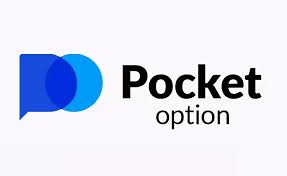
In the ever-evolving landscape of online trading, various platforms have emerged, bringing unique features and potential benefits to investors worldwide. One such platform is Pocket Option, known for its user-friendly interface and diverse trading options. However, Pocket Option Banned Countries Pocket Option banned countries present a significant issue for potential users eager to join. In this article, we will delve into the countries where Pocket Option is banned, the reasons for these bans, and what it means for traders within those regions.
Understanding Pocket Option
Pocket Option is a popular trading platform that allows users to engage in binary options trading. Launched in 2017, it quickly gained traction due to its innovative features, including social trading and demo accounts. The platform overlooks the traditional barriers often encountered in the financial markets, making it accessible for both novice and experienced traders. However, not all users can freely utilize the services provided by Pocket Option.
Why Are Certain Countries Banned?
There are numerous reasons why specific countries may be banned from using certain trading platforms. The foremost reason revolves around regulatory compliance. Financial regulatory authorities in different countries enforce specific laws and guidelines to protect investors from fraudulent activities and ensure the integrity of the financial markets. Here’s a closer look at the reasons for the bans:
1. Regulatory Restrictions
Many countries have stringent regulations regarding online trading and investment activities. For example, countries like the United States, Canada, and several EU nations have established regulatory bodies that impose rules on trading platforms. If a platform does not comply with these regulations, it may be forced to restrict access to users in those regions.
2. Risk of Fraud
Another driving factor behind the bans is the risk of scams and fraudulent schemes associated with online trading. Countries with high instances of financial fraud are often placed under scrutiny, leading to restrictions on certain platforms. Authorities aim to protect their citizens from engaging with platforms that may not have the best interests of their users in mind.
3. Legal Framework
Some countries do not have a structured legal framework concerning online trading. In such cases, trading platforms may decide to prohibit their services in those nations to avoid potential legal complications. This move ensures that they remain compliant within jurisdictions where they are legally permissible to operate.
List of Banned Countries
While Pocket Option is available to many countries globally, numerous regions are restricted. Some notable countries where Pocket Option is banned include:

- United States
- Canada
- Australia
- France
- United Kingdom
- Italy
- Spain
- Germany
- Netherlands
- Russia
The aforementioned list is not exhaustive, and the situation may change as regulations evolve. It is essential for potential traders to stay informed about the status of Pocket Option in their respective countries before attempting to engage in trading activities.
Implications for Traders
The bans on Pocket Option carry several implications for traders in affected countries. Here are some key points to consider:
1. Alternative Platforms
Traders in banned countries may need to explore alternative trading platforms that comply with local regulations. Numerous trading sites operate legally in various countries, offering similar features and tools as Pocket Option. It is crucial for traders to do thorough research to choose a trustworthy platform.
2. Legal Risks
Attempting to access a banned platform can lead to potential legal issues. Traders must be aware of their local laws regarding online trading to avoid significant penalties or legal complications. Engaging with unregulated platforms can also expose individuals to financial risks.
3. Loss of Features
Even if traders find alternative platforms, they may not offer all the appealing features that Pocket Option provides. Innovative tools such as social trading and demo accounts could be absent, which may hinder the overall trading experience.
Conclusion
Pocket Option has established itself as a noteworthy platform in digital trading, but its availability is limited in many countries due to various bans. Understanding the reasons behind these restrictions is essential for traders looking to engage in binary options trading. By acknowledging the legal landscape of online trading in their respective regions, users can make informed decisions and choose suitable platforms that comply with local regulations.
In summary, while Pocket Option is an attractive option for many, those in banned countries must navigate the limitations with caution. Investigating alternative platforms, comprehending local laws, and staying updated on the evolving regulatory landscape can significantly enhance a trader’s experience and compliance with legal standards.